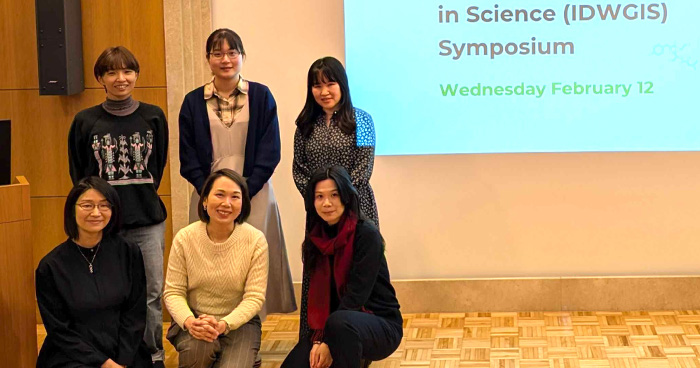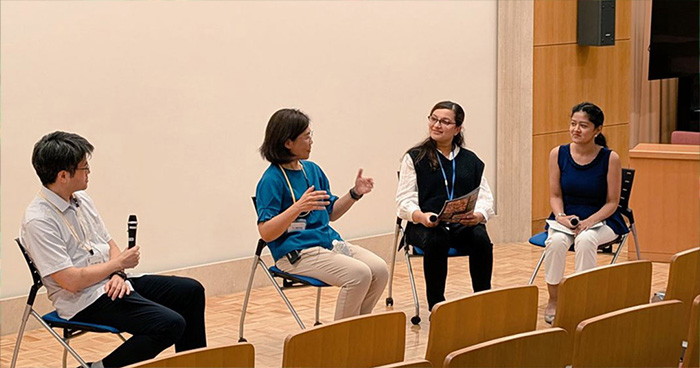Navigating academia – the way forward for women
May 12, 2025
In an enlightening symposium held at the RIKEN Center for Biosystems Dynamics Research (BDR), on April 17, 2025, three distinguished women scientists shared their personal and professional journeys, offering candid insights into the challenges and triumphs of women in scientific careers. The "Inspiring Women in Science" event featured talks by Dr. Elisabeth Tournier-Lasserve (INSERM, France), Dr. Luisa Iruela-Arispe (Northwestern University, USA), and Dr. Ondine Cleaver (UT Southwestern Medical Center, USA), followed by a thought-provoking panel discussion on navigating academia as women scientists.
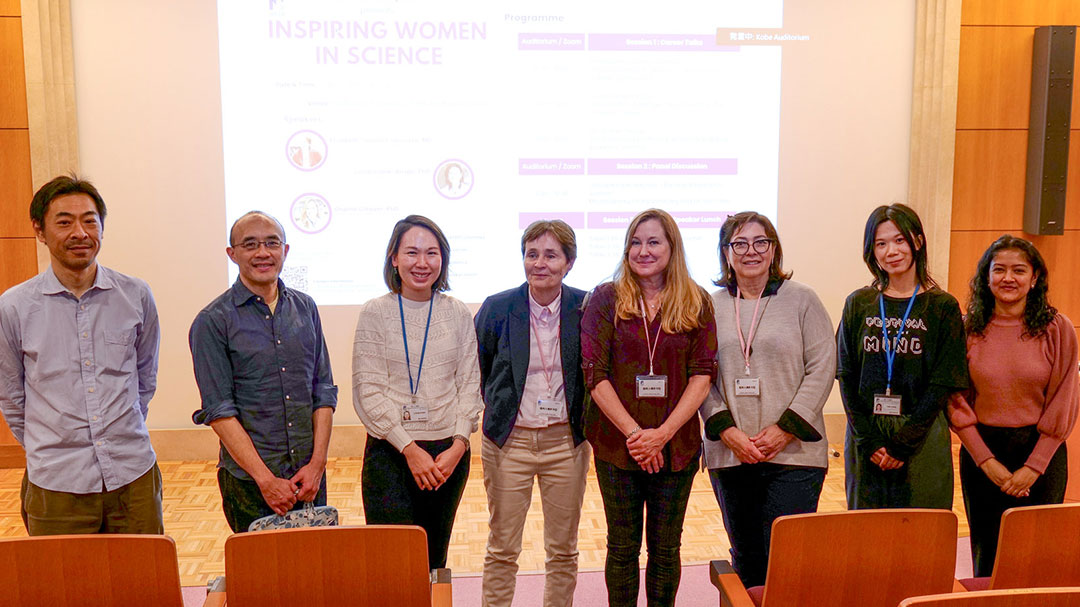
Remarkable Journeys in Scientific Discovery
In the first session of symposium, each speaker presented a deeply personal account of their scientific journey, highlighting pivotal moments that shaped their careers while offering invaluable lessons for early-career researchers and students.
Dr. Elisabeth Tournier-Lasserve, Professor of Medical Genetics at Paris University, recounted her groundbreaking work on inherited cerebrovascular diseases. Her story began in Cambodia and Africa, where her father, a surgeon and dean of a medical university, influenced her decision to pursue medicine. After completing medical school in France, her passion for research led her to neurology and ultimately to a breakthrough in identifying CADASIL, a hereditary stroke disorder.
"My first lesson was very simple: reach out to the most famous people in your field," Dr. Tournier-Lasserve advised, describing how she contacted leading geneticists despite being a young researcher. "The best scientists are often the most modest ones," she added, emphasizing that collaboration and persistence were crucial to her success.
Dr. Luisa Iruela-Arispe, Chair of the Department of Cell and Developmental Biology at Northwestern University, shared defining moments in her career, including a devastating setback during her PhD when another researcher published the complete sequence of type VIII collagen—her thesis project—before she could finish it.
"Failures and setbacks are not the opposite of success; they're part of the trajectory," Dr. Iruela-Arispe reflected. "It is okay to feel sorry for yourself for about half an hour. After that, you need to learn from the process, pivot, and get back on the saddle."
Dr. Ondine Cleaver, Professor at the Department of Microbiology at UT Southwestern Medical Center, shared her unexpected path from history major to developmental biologist. Her story highlighted the importance of following one's scientific curiosity, as her work on blood vessel formation began when she observed unexpected cell patterns during heart research.
"Success is learning to go from failure to failure with no loss of enthusiasm," Dr. Cleaver shared, emphasizing resilience as a key trait for scientists. She spoke candidly about balancing motherhood with research, noting that she once finished writing a grant while in labor and submitted it a few days later. She then resumed work four weeks after childbirth, as there was no maternity leave allowed in the first year of her faculty position
Navigating Institutional Challenges
Following the talks was a panel discussion moderated by Dr. Yan Chen and Dr. Bipasha Dey, which delved into institutional challenges and potential solutions for women in academia. A central theme was addressing the "leaky pipeline"—the phenomenon where the proportion of women decreases at higher academic ranks.
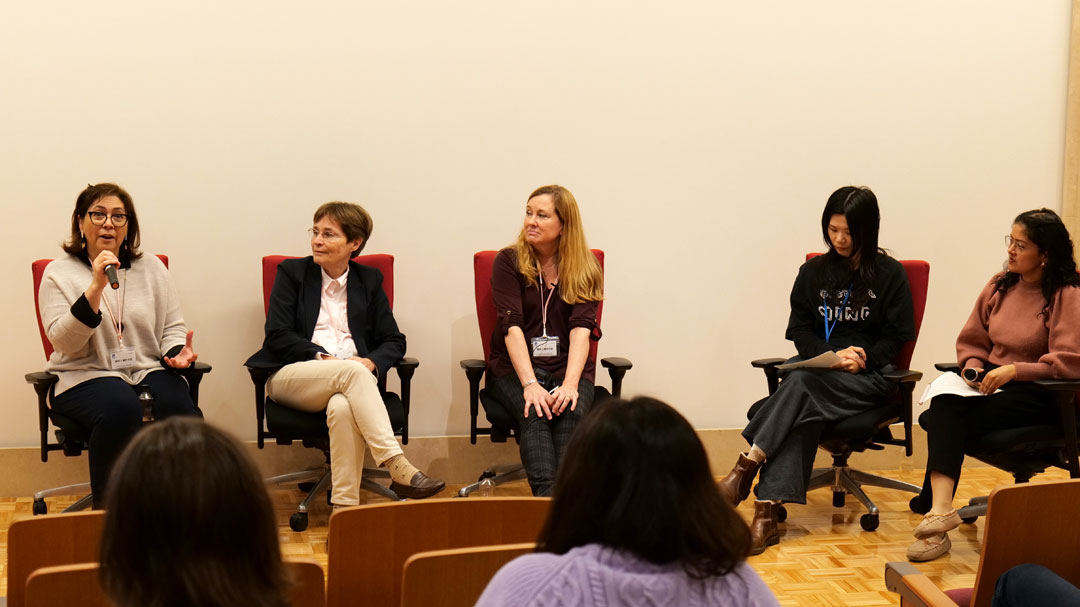
Dr. Tournier-Lasserve highlighted initiatives at the Paris Brain Institute, where a gender equity working group has systematically tracked and improved women's representation in scientific committees, conferences, and leadership positions since 2017. The institute also expanded its efforts through collaboration with the ALBA Network, which promotes diversity beyond gender equity.
The speakers agreed that making practical institutional changes is essential. Dr. Cleaver described how the Women in Science and Medicine Advisory Committee (WISMAC) at UT Southwestern has implemented concrete improvements since 1994, including distinguished professorships for women, tenure clock extensions for new parents, salary equity studies, on-campus childcare, and dedicated nursing rooms.
Overcoming Barriers: Practical Advice
Throughout the event, the speakers offered practical wisdom for early-career researchers facing various challenges.
On work-life balance: "There isn't one," Dr. Cleaver stated bluntly. "You work really hard, especially during these years when you're preparing for your career, but there will be some balance at some point." All three speakers stressed the importance of asking for help and building support networks.
On gender bias: The panelists acknowledged both conscious and unconscious bias in academia. Dr. Iruela-Arispe noted three main factors behind the "leaky pipeline": societal expectations placed on women as mothers and wives, lack of self-confidence among women scientists, and peer pressure.
"I didn't face discrimination in science, but I felt difficulties and biases in society," she reflected. "We are privileged because we are scientists... we pursue the truth, we appreciate differences, and we embrace them."
On building resilience: "When that time comes that you think 'I'm going to give up'—and it comes to everybody at some point—just take one thing at a time," advised Dr. Iruela-Arispe. "Go to sleep, because the next day you come back and things are not as bad."
The speakers unanimously emphasized the power of peer support groups. Dr. Cleaver described how she formed groups throughout her career where colleagues could present work, offer criticism, and provide emotional support. "All five women in this original group ended up getting tenured," she noted.
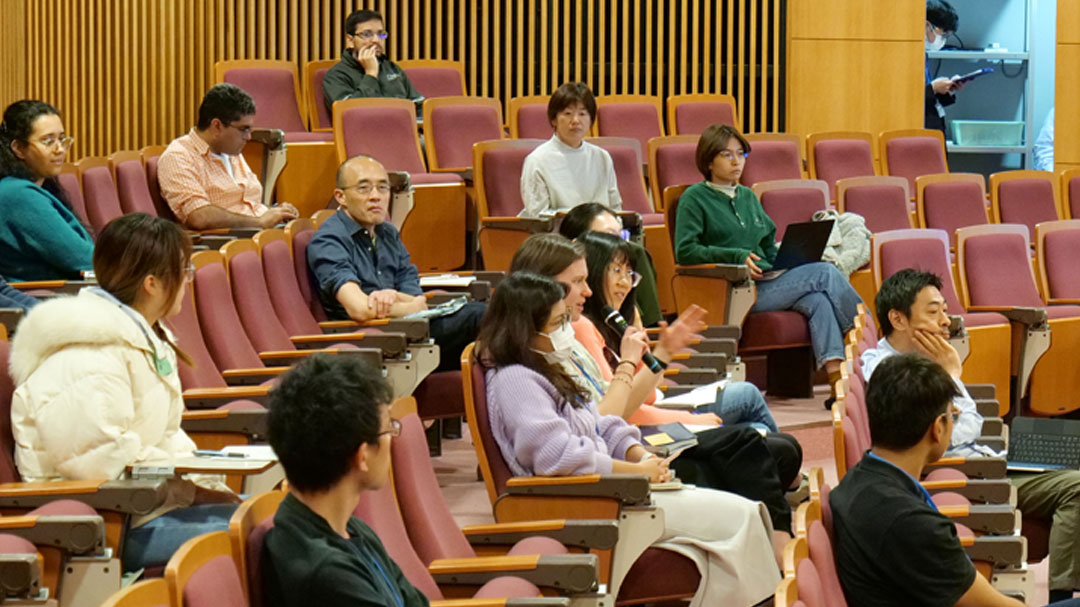
The Path Forward
The symposium concluded with a call to action for both institutions and individuals. The speakers stressed that improving gender equity requires conscious effort from everyone—not just women—and that male allies play a crucial role in advancing women in science.
For institutions, the panelists recommended implementing specific policies to support women scientists, such as childcare facilities, flexible working hours, and targeted mentorship programs. They also emphasized the importance of ensuring women's representation in leadership positions and decision-making committees, and educating institutional leadership on unconscious bias to address implicit gender biases that exist during the recruitment and promotion of PIs.
For early-career researchers, the speakers offered final words of encouragement: "This is your time now. Take on the challenge. You might be afraid, but that develops courage. Courage leads to confidence," urged Dr. Iruela-Arispe.
Dr. Tournier-Lasserve advised, "Don't hesitate to go and do whatever you feel is good. Don't be afraid of anything."
Dr. Cleaver concluded with perhaps the most practical advice: "Don't do it alone. Share, talk, get advice. I think that's the best way to have courage and to be resilient with failure—just to see that you're not the only one."
Overall, the event was met with enthusiastic feedback from participants. "I feel inspired by these talks and international discussions," shared one attendee. Another remarked, "It was stimulating to hear the talks. Bringing up these topics is actually helpful and gives me advice to move forward in my career."
Many attendees appreciated the authenticity of the presentations, with one commenting, "The talks were very realistic and raw and touched on actual struggles. There were useful advice." Several participants expressed interest in having similar events more frequently, with one suggesting that RIKEN BDR establish its own committee for women scientists similar to UT Southwestern's WISMAC.
The symposium format encouraged audience participation during the panel discussion, though some attendees suggested even more interactive elements could be incorporated in future events. "I would like to see more audience participation in the panel discussion," noted one participant.
The overwhelming sentiment was captured by one attendee who stated, "Amazing event, and we should do this more often to bring up this awareness over and over to have change!"
There was also an opportunity after the symposium for anyone interested in joining to sit down for a more casual conversation over lunch with the speakers.
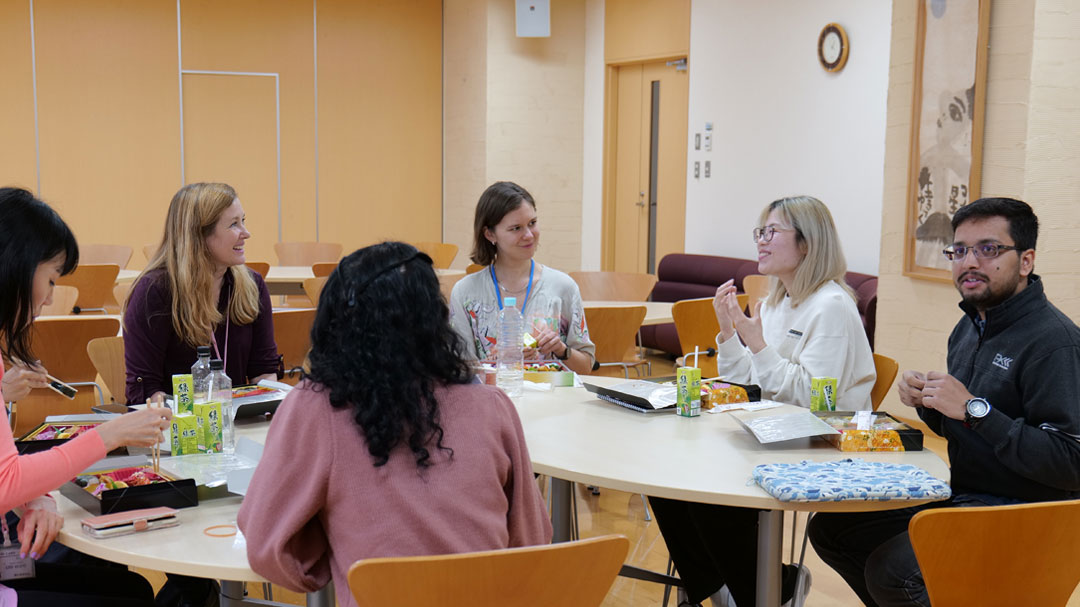
The "Inspiring Women in Science" event provided not only inspiration but also actionable strategies for navigating the complex terrain of scientific careers. As research institutions worldwide continue to address gender disparities, the candid insights and experiences shared by these accomplished scientists offer valuable guidance for building a more inclusive scientific community.
The symposium was organized by the BDR Diversity Working Group and was open to all RIKEN staff, with hybrid participation options available for those unable to attend in person.





